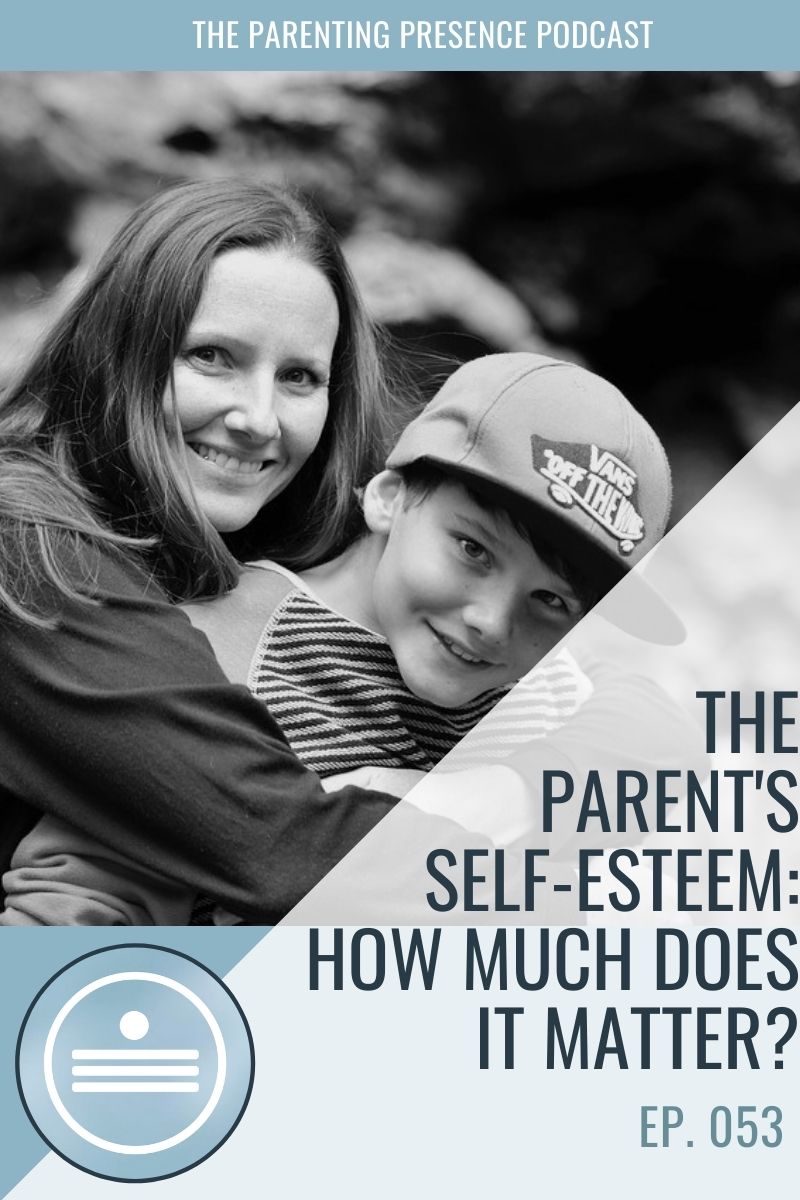
What does a parent’s self-esteem have to do with how children feel about themselves? Does our own self-esteem impact our child’s self-esteem?
The parent’s self-esteem has everything to do with how children develop their own. Here is how… Your self-esteem impacts your confidence, how you show up in the world, and the way you see yourself. Your own self-esteem also impacts your parenting presence. What does that mean?
The way you show up in the world also impacts how you show up in the world of your child.
And the way you see yourself also impacts the way you see yourself as a parent. And since children observe us all the time (that is the way they learn after all), they also see how we react to the world and how that impacts the way we feel about ourselves.
Children learn how to feel about themselves by the way they see us feel about our own selves.
Whether we are aware of it or not, we teach them how to feel about themselves through modeling. So to help children develop a healthy sense of self-esteem, we need to check in with ourselves:
- How is our own self-esteem?
- What can strengthen it?
That and more on today’s episode. (By the way, sign up below not to miss upcoming episodes!)
Self-Esteem is something we model, often without our awareness.
We have to remember that children read the non-verbal cues and signals much quicker and more readily than anything we say. Monkey see monkey do. This happens because of a special type of neurons in our brain, the mirror neurons.
Mirror neurons are responsible for development of social awareness and development of self-awareness. They support the child in developing awareness of themselves and others and how to behave around others and how to feel about themselves in the context of a larger group. This does not necessarily mean that children copy our behaviors, but they surely register them enough to want to try them on “for fit.”
Parent’s self-esteem develops through better boundaries and the Sense of Agency.
Since children learn by observation, your children look up to you. If they see your concept of yourself waver depending on what is said to you, they will not learn to preserve their own. If the parent’s self-esteem goes up and down based on someone else’s opinion of them or the work they do, the children internalize this lack of confidence in themselves as well.
So, if you are finding that your child may be struggling with self-esteem, it may be because they had or have role models that have low self-esteem. If this happens to be you, the way to help your child and the way to help yourself is to start paying close attention to:
- boundaries — yours and your child’s, and
- the Sense of Agency — yours and your child’s
If you want to hear more about that, I would recommend listening to the previous episodes about boundaries and about self-esteem. Everything that is talked about in those episodes as applied to children can be used to support our own boundaries and develop our own self-esteem and the Sense of Agency.
So just as we become aware and intentional about our own influence on the child’s boundaries, we likewise become intentional and aware about who from the people around us infiltrates our own boundaries. We also become more intentional in protecting ourselves from unwanted influences of others. Time to practice those things, so that we can help our children with their own boundaries, their own sense of agency, and their own self-esteem.
